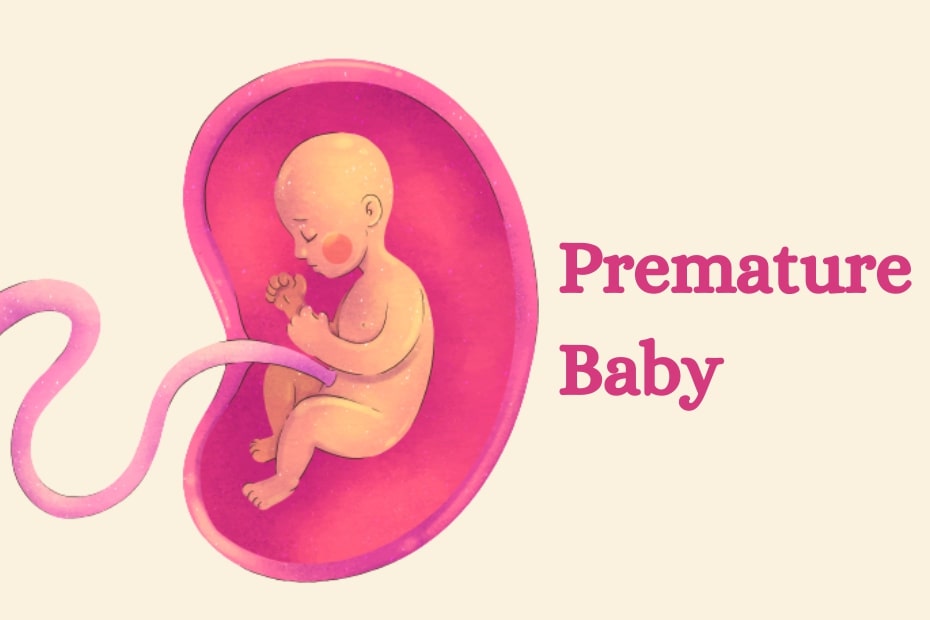Premature babies are babies born before the normal period of pregnancy or gestation of 37–42 weeks. They are called premature because they are born before all the necessary development in the womb is over for the baby to be ready for birth. Premature birth is a very important health concern among newborn babies and requires urgent attention from the pediatric team. Preterm babies have special needs and therefore need to be taken care of very diligently.
Earlier preterm births were associated with morbidity and mortality for the baby. However, with the development of new technology and healthcare practices, babies as young as 28 weeks have a chance at a healthy and long life.
What are the different types of preterm birth?
Preterm birth is categorized based on the period of pregnancy when they were born.
Term baby: baby born between 37 and 42 weeks of gestation
Preterm Baby: Born before 37 weeks of gestation
Very Preterm Baby: Born between 28 and 32 weeks.
Extremely Preterm Baby: born before 28 weeks of gestation.
What are low-birth-weight babies?
Babies born with a body weight below… Percentiles are known as low birthweight babies. Premature babies are also low-birth-weight babies, as they haven’t attained the desired weight at the age they are born.
Based on their birth weight, babies can be put into the following categories:
1. Low Birth Weight Baby: weight below 2.5 kg at birth
2. Very Low Birth Weight Baby: weighs below 1.5 kg at birth.
3. Extremely Low Birth Weight Babies: babies born weighing less than 1500 g
What are the risk factors for the premature birth of a baby?
The following are the risk factors for the premature birth of a baby:
1. Preterm rupture of the membrane
2. Hypertension in the mother
3. Birth defects
4. Illicit drug intake by the mother
5. Reproductive tract infection in the mother
6. Febrile illness in the mother
7. Previous preterm delivery
8. Twin or multiple pregnancies
The presence of any of the above can lead to the premature birth of babies.
What are the risks faced by premature babies?
Premature babies face a multitude of problems because of poorly developed physiological, immunological, and physical responses of the body, and therefore they are at risk for the following conditions:
1. Hypothermia, as they do not have the means to maintain their body temperatures.
2. Lack of surfactant in the lungs can lead to respiratory distress syndrome. They may also have sudden pauses while breathing, called apnea.
3. They have trouble feeding as they have weak swallowing and sucking reflexes.
4. The ability of the liver to metabolize the bilirubin is still in a premature stage, and therefore the accumulation of bilirubin in the skin leads to jaundice.
5. Neurological problems as their nervous systems are not fully developed.
6. Premature babies also face trouble with growth and development.
Therefore, premature babies need to be well cared for.
7. Premature infants are prone to infections because of their undeveloped immune systems.
How do you care for premature babies?
Premature babies require a lot of care from parents as well as from medical professionals. Following are the precautions that one can take to take care of premature infants:
1. Medical care by health professionals like pediatricians and nurses is very important, as infants need constant monitoring and medical care.
2. Kangaroo mother care is a simple yet effective way to take care of your premature infant. Mother or any other carer can place the baby in between the breasts with the head to one side and the legs in a frog-like manner. This helps to give warmth to the baby and also helps in feeding and bonding with the baby.
3. Watch for regular breathing movements, as the baby may have sudden pauses and an abnormal breathing pattern.
4. Get the child all the required immunizations on time to protect them from infections according to the immunization schedule.
5. Keep the environment clean and neat and limit exposure to new individuals to limit the spread of infection.
6. Keep recording the growth and development of the child, as premature babies are at risk of developmental and growth delays.
7. Premature babies have trouble feeding, and therefore they need to be fed through special bottles or tubes.
9. Get all the help and emotional support you may need to take care of your baby. Caring for a premature baby can take quite a toll on the parents; therefore, a good support group can help ensure that the parents are always in a position to take care of their babies with some extra help.

